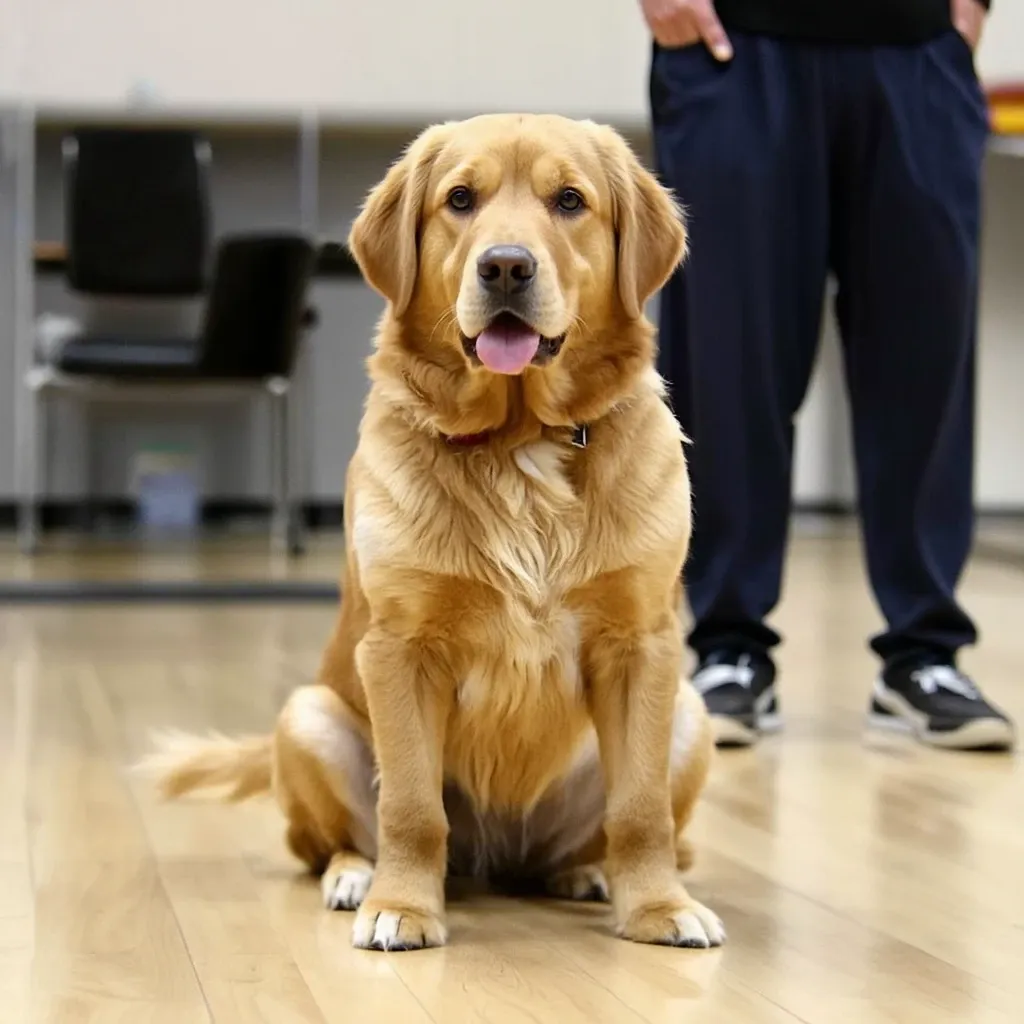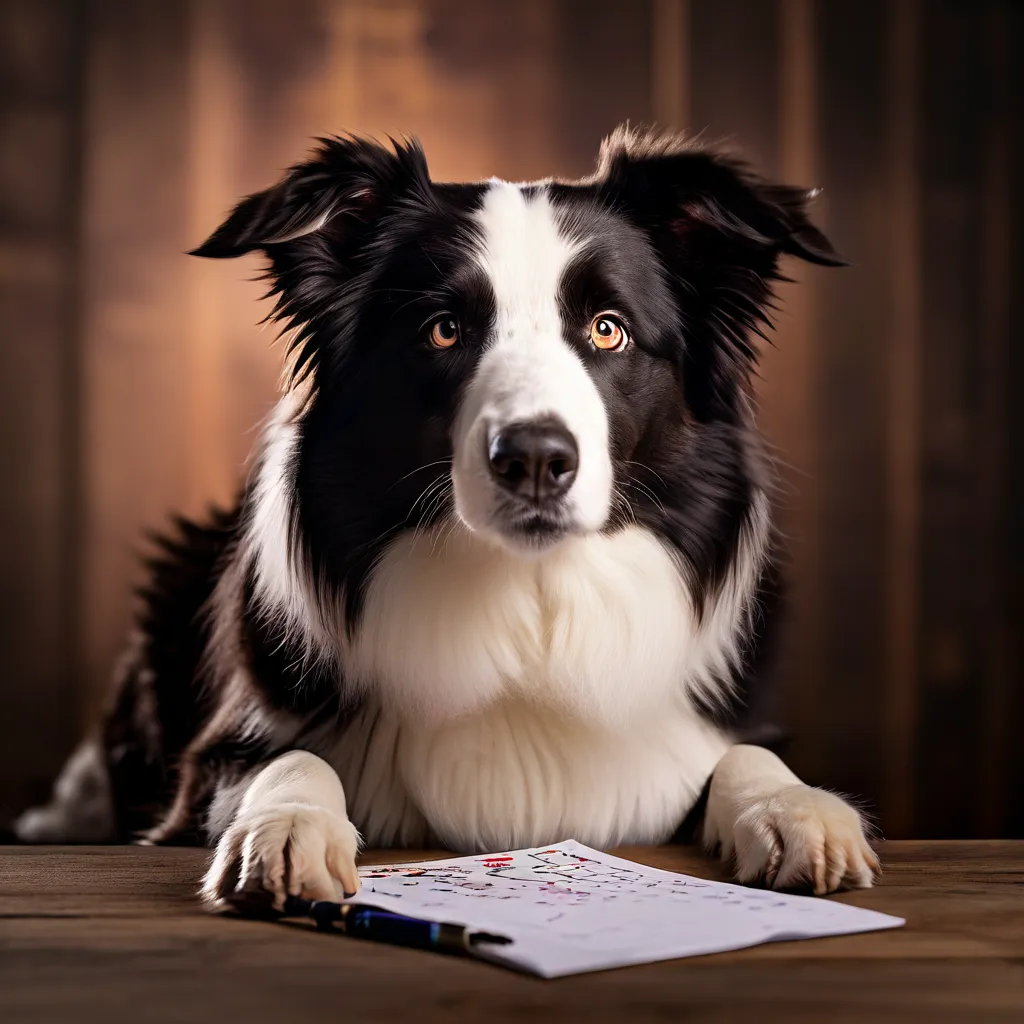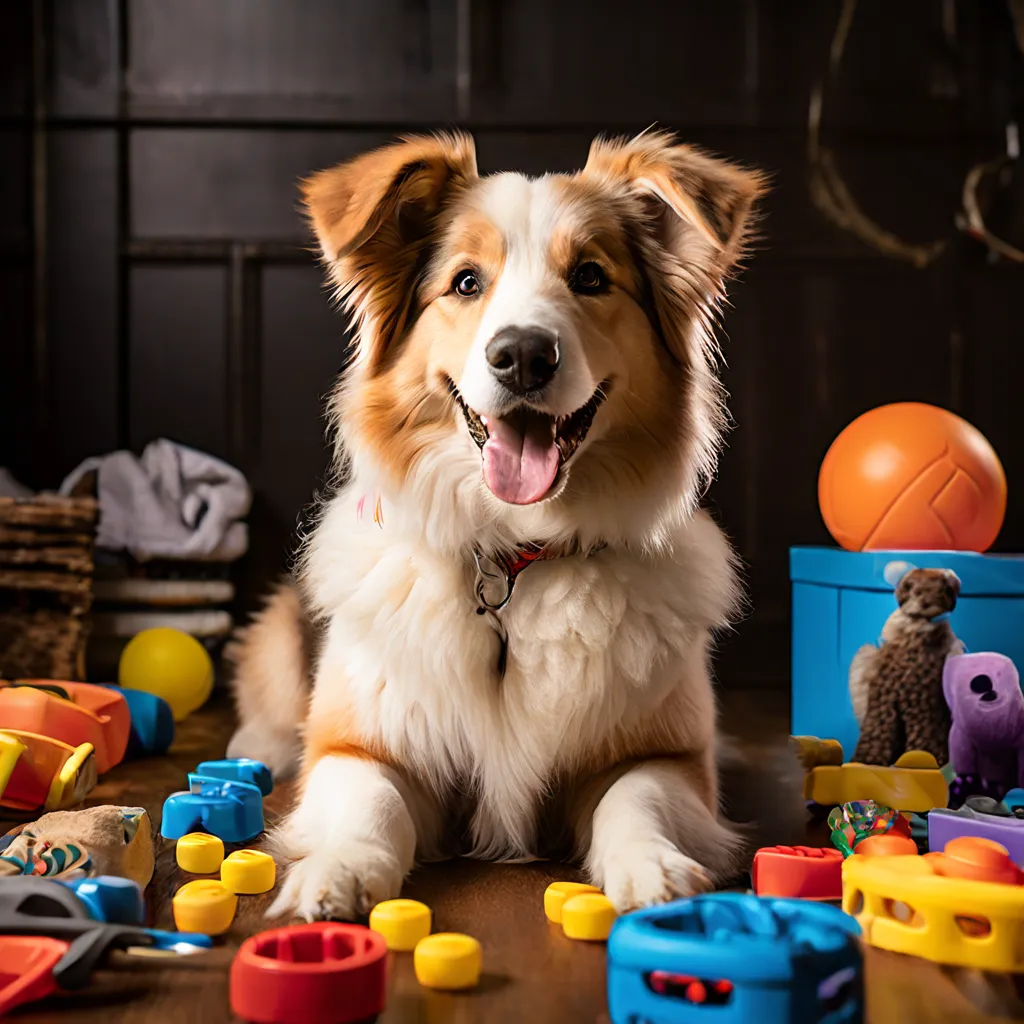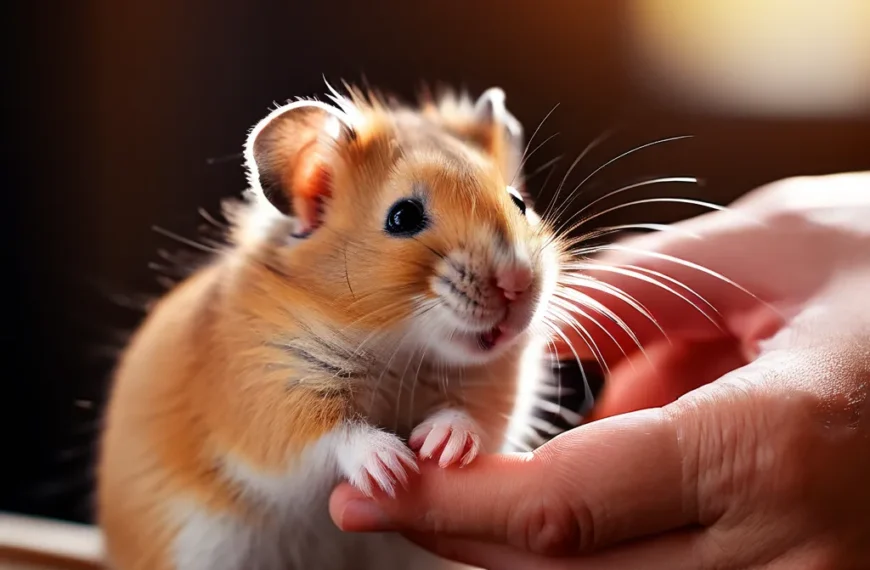Introduction
When it comes to bringing a new furry friend into your family, one of the most important considerations is how easy they are to train. After all, a well-behaved dog is a happy dog! But what makes a dog breed easy to train in the first place? Is it their intelligence, socialization, or something else entirely? In this article, we’ll delve into the world of canine trainability, exploring the top breeds that excel in obedience and those that may require a bit more patience and persistence. From the intelligent and eager-to-please Border Collie to the loyal and loving Golden Retriever, we’ll uncover the secrets behind the easiest dog breeds to train. So, if you’re ready to find your perfect pup and start your training journey, let’s get started!
What Makes a Dog Breed Easy to Train?
When it comes to dog training, some breeds stand out from the rest. But what makes a dog breed easy to train? Is it their intelligence, temperament, or something else entirely?
While every dog is an individual, certain breeds are generally more receptive to training due to their breeding history, intelligence, and natural instincts. Here, we’ll explore the key factors that make a dog breed easy to train.

A dog’s trainability is influenced by a combination of genetic and environmental factors. Breeds developed for specific tasks, such as herding or hunting, tend to excel in obedience training due to their strong work ethic and desire to please their owners. Additionally, breeds with high intelligence, such as Border Collies and Golden Retrievers, are often quick to learn and respond to commands.
While breed alone is not the sole determinant of a dog’s trainability, it can certainly play a significant role. By understanding the characteristics that make a breed easy to train, you can better prepare yourself for the challenges and rewards of dog ownership.
The Role of Socialization, Training, and History in Trainability
Socialization, training, and history play a crucial role in a dog’s trainability. A well-socialized dog is more likely to be confident, calm, and receptive to training. Socialization helps a dog develop good manners, builds confidence, and reduces the risk of fear-based behaviors.
The Importance of Socialization
Socialization is the process of exposing a dog to new people, animals, sights, sounds, and smells. It helps a dog become acclimated to new experiences in a positive manner. Well-socialized dogs are more likely to be calm and confident in new situations, making them easier to train.
The Impact of Training on Trainability
Training also plays a significant role in a dog’s trainability. A dog that has received positive reinforcement training is more likely to be responsive to commands and eager to please. Consistent training helps build trust between the dog and its owner, making it easier to train.
The Role of History in Trainability
A dog’s history, including its breeding and life experiences, can also impact its trainability. Dogs that have been bred for specific tasks, such as herding or hunting, may be more inclined to follow commands and respond to training. Additionally, dogs that have had positive experiences with training in the past are more likely to be receptive to new training.
The Interplay Between Socialization, Training, and History
Socialization, training, and history are interconnected and can impact a dog’s trainability. A dog that has been well-socialized and received positive reinforcement training is more likely to be confident and responsive to commands. A dog’s history, including its breeding and life experiences, can also influence its trainability.
Intelligence and Trainability: How Breeds Like Border Collies and Golden Retrievers Excel
When it comes to intelligence and trainability, some dog breeds stand out from the rest. Breeds like Border Collies and Golden Retrievers are renowned for their exceptional intelligence, responsiveness, and ability to learn quickly. But what makes them so special?
Intelligence and Trainability: A Winning Combination
Intelligence and trainability are closely linked. A dog’s intelligence refers to its ability to learn, problem-solve, and adapt to new situations. Trainability, on the other hand, is the dog’s willingness to learn and respond to commands. Breeds like Border Collies and Golden Retrievers excel in both areas, making them highly trainable and responsive to their owners.
The Role of Breeding and Selection
These breeds were developed for specific purposes, such as herding (Border Collies) and retrieving (Golden Retrievers). Through selective breeding, breeders emphasized traits like intelligence, athleticism, and a strong work ethic. As a result, these breeds have evolved to be highly intelligent and trainable, with a strong desire to please their owners.
Key Characteristics of Intelligent and Trainable Breeds
So, what sets breeds like Border Collies and Golden Retrievers apart? Some key characteristics include:
- High intelligence: These breeds are highly intelligent and able to learn quickly.
- Strong work ethic: They have a strong desire to please their owners and engage in mentally stimulating activities.
- Responsiveness: They are highly responsive to commands and feedback.
- Athleticism: They are physically fit and agile, making them well-suited to a variety of activities.
The Benefits of Owning an Intelligent and Trainable Breed
Owning a breed like a Border Collie or Golden Retriever can be incredibly rewarding. With their high intelligence and trainability, they can excel in a variety of activities, from agility and obedience to therapy work and search and rescue. They also make loyal and loving companions, forming strong bonds with their owners.

Top Breeds for Trainability and Obedience
When it comes to trainability and obedience, some dog breeds stand out from the rest. These breeds are smart, social, and motivated to please, making them highly responsive to training. Here are some of the top breeds for trainability and obedience:
Border Collies
Known for their high intelligence and strong work ethic, Border Collies are one of the most trainable dog breeds. They excel in obedience, agility, and herding competitions.
Golden Retrievers
Golden Retrievers are popular for their friendly, loyal, and easy-to-train nature. They have been bred to please people, making them highly responsive to commands and training.
German Shepherds
German Shepherds are highly intelligent and loyal dogs that thrive on structure and training. They are often used as police and military dogs due to their exceptional obedience and trainability.
Poodles
Poodles are known for their intelligence, athleticism, and trainability. They excel in obedience, agility, and other dog sports, making them a popular choice for dog owners who value trainability.
Rottweilers
Rottweilers are powerful, intelligent, and loyal dogs that respond well to training. They are often used as guard dogs, police dogs, and search and rescue dogs due to their exceptional obedience and trainability.
Shetland Sheepdogs
Shetland Sheepdogs, also known as Shelties, are small, intelligent, and highly trainable dogs. They excel in obedience, agility, and herding competitions, making them a popular choice for dog owners who value trainability.
Doberman Pinschers
Doberman Pinschers are intelligent, loyal, and athletic dogs that respond well to training. They are often used as guard dogs, police dogs, and search and rescue dogs due to their exceptional obedience and trainability.
These breeds are just a few examples of the many dog breeds that excel in trainability and obedience. Remember, every dog is an individual, and while breed tendencies may be a good indicator of trainability, consistent training and socialization are key to developing a well-behaved and obedient dog.
Breeds to Avoid for First-Time Owners and Why
As a first-time dog owner, it’s essential to choose a breed that’s easy to train, socialize, and care for. While every dog is unique, some breeds are more challenging than others, especially for inexperienced owners. Here are some breeds to avoid for first-time owners and why:
High-Energy Breeds
- Border Collies: Known for their high intelligence and energy levels, Border Collies require intense exercise and mental stimulation. Without proper training and socialization, they can become destructive and difficult to manage.
- Australian Shepherds: Similar to Border Collies, Australian Shepherds are high-energy breeds that need regular exercise and mental stimulation. They can be overwhelming for first-time owners who don’t have the time or experience to provide the necessary care.
Powerful Breeds
- Doberman Pinschers: With their powerful build and strong instincts, Doberman Pinschers can be intimidating for first-time owners. They require experienced handling, socialization, and training to prevent aggression and behavioral issues.
- Rottweilers: Rottweilers are powerful dogs that need strong leadership and consistent training. Without proper socialization and training, they can become aggressive and difficult to manage.
Breeds with Special Needs
- Doodles: Doodles, such as Labradoodles and Goldendoodles, are often considered high-maintenance breeds. They require regular grooming, exercise, and training, which can be overwhelming for first-time owners.
- Beagles: Beagles have high prey drive and require regular exercise and mental stimulation. They can be challenging for first-time owners who don’t have the time or experience to provide the necessary care.
Breeds with Strong Instincts
- Akitas: Akitas are powerful dogs with strong instincts and a strong prey drive. They require experienced handling, socialization, and training to prevent behavioral issues and aggression.
- French Bulldogs: French Bulldogs have a strong instinct to protect their owners and can be territorial. They require consistent training and socialization to prevent behavioral issues.
Remember, every dog is unique, and breed alone is not a guarantee of success or failure. However, by avoiding these breeds, first-time owners can reduce the risk of behavioral issues and ensure a smoother transition into dog ownership.
Beyond Genetics: What Determines a Dog’s Trainability?
While genetics play a significant role in a dog’s trainability, they are not the only factor. A dog’s environment, socialization, and individual experiences also contribute to their ability to learn and respond to commands.
A dog’s upbringing and socialization from an early age can greatly impact their trainability. Puppies that are exposed to various environments, people, and experiences tend to be more confident and receptive to training. On the other hand, dogs that are isolated or have limited social interaction may be more challenging to train.
Additionally, a dog’s individual personality and temperament can influence their trainability. Some breeds, such as Border Collies and Golden Retrievers, are known for their high intelligence and eagerness to please, making them highly trainable. However, other breeds may be more stubborn or independent, requiring more patience and creative training methods.
A dog’s history and past experiences can also impact their trainability. Dogs that have had positive reinforcement training and have been consistently rewarded for good behavior tend to be more responsive to commands. On the other hand, dogs that have been punished or neglected may be more fearful and resistant to training.
Furthermore, a dog’s physical and mental health can also affect their trainability. Dogs that are in pain or discomfort may be less receptive to training, while dogs that are mentally stimulated and engaged tend to be more focused and responsive.
In conclusion, while genetics can influence a dog’s trainability, they are not the sole determining factor. A dog’s environment, socialization, individual experiences, personality, and health all play a significant role in their ability to learn and respond to commands.
Conclusion
Choosing the right dog breed for trainability can be a daunting task, but by understanding the key factors that contribute to a breed’s ease of training, you can make an informed decision. As we’ve discussed, intelligence, socialization, training, and history all play a significant role in determining a dog’s trainability. Breeds like Border Collies and Golden Retrievers excel in these areas, making them top choices for obedience and trainability.
However, it’s essential to remember that every dog is an individual, and while breed tendencies may be a good indicator of trainability, it’s not the only factor. Proper training, socialization, and care can make any dog a wonderful companion, regardless of breed.
If you’re a first-time owner, it’s crucial to avoid breeds that are known to be challenging to train, such as those with strong prey drives or independent personalities. Instead, opt for breeds that are known for their intelligence, loyalty, and eagerness to please.
Ultimately, the key to successful dog training lies in understanding your dog’s unique needs, personality, and learning style. By doing so, you can develop a strong bond with your dog and help them become a well-behaved and loyal companion.

Remember, every dog is capable of learning and growing, regardless of breed or background. With patience, consistency, and positive reinforcement, you can help your dog become the best version of themselves.
References
- https://www.rottweilerhq.com/rottweiler-training-guide
- https://www.psychologytoday.com/intl/blog/canine-corner/202208/does-activity-level-predict-trainability-in-dog
- https://www.thesprucepets.com/most-obedient-dog-breeds-479692
- https://frenchbulldogclub.org/breedinformation
- https://www.dogster.com/dog-breeds/easiest-to-train-dog
- https://www.petmd.com/dog/behavior/how-to-socialize-pupp
- https://www.dogster.com/dog-training/how-to-socialize-an-adult-do
- https://www.akc.org/expert-advice/dog-breeds/13-of-the-most-trainable-breeds
- https://www.beaglepro.com/beagle-puppy-trainin














